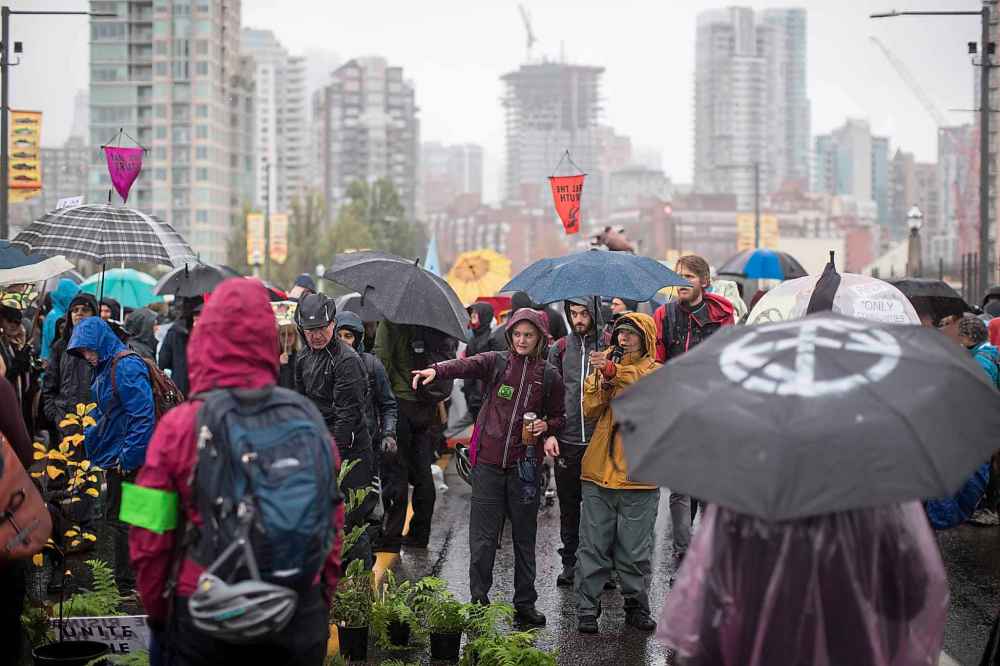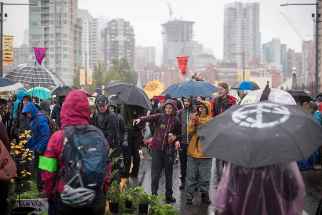Militant protests foretaste of rage to come
Read this article for free:
or
Already have an account? Log in here »
To continue reading, please subscribe:
Monthly Digital Subscription
$0 for the first 4 weeks*
- Enjoy unlimited reading on winnipegfreepress.com
- Read the E-Edition, our digital replica newspaper
- Access News Break, our award-winning app
- Play interactive puzzles
*No charge for 4 weeks then price increases to the regular rate of $19.00 plus GST every four weeks. Offer available to new and qualified returning subscribers only. Cancel any time.
Monthly Digital Subscription
$4.75/week*
- Enjoy unlimited reading on winnipegfreepress.com
- Read the E-Edition, our digital replica newspaper
- Access News Break, our award-winning app
- Play interactive puzzles
*Billed as $19 plus GST every four weeks. Cancel any time.
To continue reading, please subscribe:
Add Free Press access to your Brandon Sun subscription for only an additional
$1 for the first 4 weeks*
*Your next subscription payment will increase by $1.00 and you will be charged $16.99 plus GST for four weeks. After four weeks, your payment will increase to $23.99 plus GST every four weeks.
Read unlimited articles for free today:
or
Already have an account? Log in here »
Hey there, time traveller!
This article was published 07/10/2019 (2261 days ago), so information in it may no longer be current.
Canada’s green activists turned a sharp corner Monday when demonstrators blocked rush-hour traffic in Halifax, Toronto, Edmonton and Vancouver. The action probably did not win any friends for the struggle against climate change. It underlined the painful dislocations that will be needed to transform Canada to a low-carbon lifestyle.
Eleven days ago, when tens of thousands of students and their teachers took Friday off from school to march against greenhouse gas emissions, climate action seemed like a walk in the park. When that day’s action was finished and the school groups went home, however, it was hard to see that progress toward lower emissions had been achieved.
The militant hard core of the Extinction Rebellion movement took their turn yesterday in cities in the U.S., the U.K., the Netherlands, Australia and Canada. With police permission, they stood in the way of vehicles on selected bridges that carry rush-hour traffic to their cities’ central business districts, then dispersed or were arrested when the police decided they had made their point and should allow commuters to get to work.

A few screaming matches and a few fistfights erupted between frustrated motorists and obdurate climate activists, but on the whole it was polite and peaceful. Once again, the progress toward decarbonization was difficult to discern.
The hard truth is that decarbonization will be inconvenient for most of us and really painful for a few. For the many families that cannot leave home except by car, the shift to a low-carbon economy will be hard to accept. What are they supposed to do — trade in their SUV for a donkey? Those screaming matches and fistfights provoked by the Extinction Rebellion are a mild foretaste of the rage to come.
The authorities in Canada are caught between an older generation raised on fossil fuel consumption and the younger generation that plans to keep breathing on this planet for another 60 or 80 years. All generations, of course, want wonderful lives for their descendants, but that desire is somewhat abstract for those who have already lived half their lives. It is much more sharply pointed for those who have most of their lives still ahead of them.
The older ones find a thousand reasons why they should carry on as they have always done: My individual carbon-saving sacrifice will make no perceptible difference in the great scheme of things. Let’s wait for China, India and the U.S. to take the lead and then we’ll follow them. Engineers will find technical solutions. Climate scientists who warn of looming disaster may be wrong.
The younger ones see no merit in those reasons: What good will excuses do once the rising oceans swamp coastal cities and climate refugees elbow their way into the dwindling areas of habitable dry land? The inconvenience of switching to a bicycle is slight compared to the catastrophe of struggling for life on a dying planet.
The hard truth is that decarbonization will be inconvenient for most of us and really painful for a few.
It is pleasant to suppose that a few simple tweaks here and there in taxation or regulation will lead to a painless, gradual conversion of Canadian industry and consumer habits to a low-carbon future. That is a nice, reassuring message, suitable for an election campaign.
Extinction Rebellion and their annoying traffic disruptions may have brought us a little closer to the truth: decarbonization will be painful, and before we’re through, it could get ugly.

![“Everyone’s here demonstrating and here I am carrying the canoe, and I thought there was a bit of symmetry and symbolism. The portage is often the hardest part [of a canoe trip],” said Garrett Tremblay. (Ruth Bonneville / Winnipeg Free Press)](https://dev.winnipegfreepress.com/wp-content/uploads/sites/2/2022/04/190927+Climate+Strike+Canoe+Leg+3a+.jpg?w=100)










